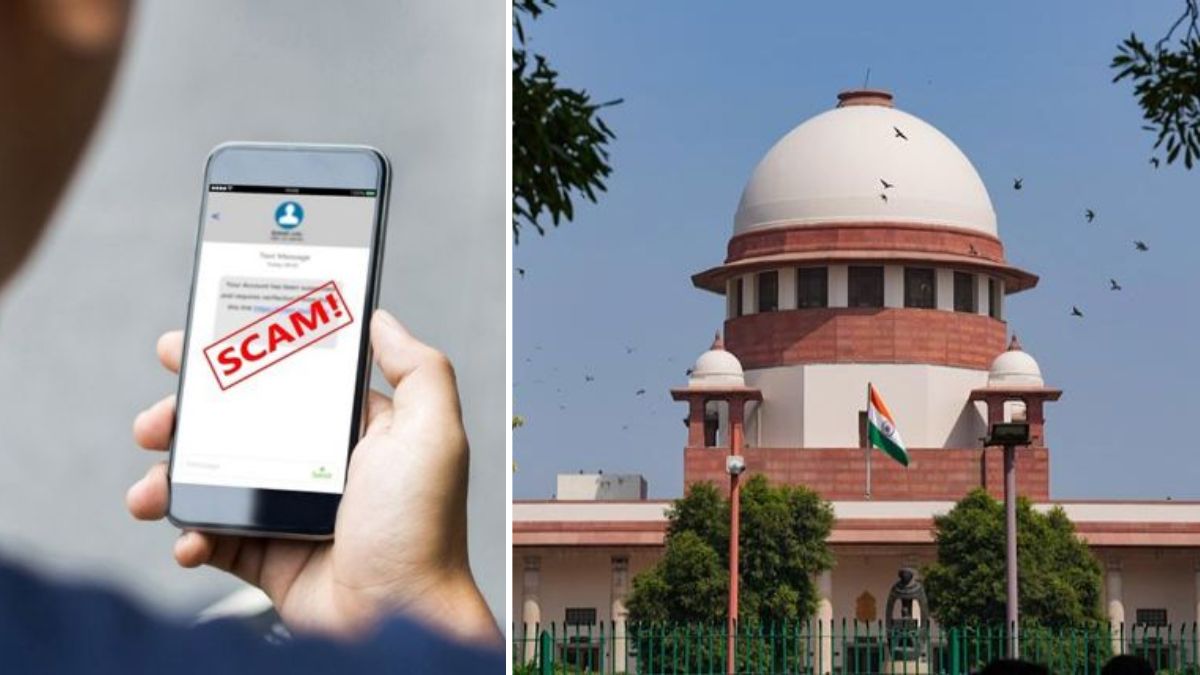SC takes suo motu case on digital arrest scams, calls court order forgeries 'direct assault on judicial dignity'

In a strongly worded order, the Supreme Court has taken suo motu cognisance of a shocking case in which a senior citizen couple was defrauded of ₹1.5 crore through what has come to be known as a digital arrest scam, a rising form of cyber fraud where victims are coerced, often under the guise of law enforcement, to transfer money under threat of arrest.
The top court initiated proceedings after receiving a complaint from the couple, who were duped between September 3 and 16, 2025. According to the order, the victims were contacted by individuals impersonating CBI officers and other government authorities via phone and video calls.
These fraudsters allegedly displayed forged Supreme Court orders, complete with fabricated seals and signatures of judges, through WhatsApp and video conferences. Under the threat of imminent arrest and property seizure, the couple was coerced into transferring ₹1.5 crore in multiple transactions across different bank accounts.
Forgery of Judicial Authority: A Grave Concern
The bench observed that while ordinarily such a case might be referred to the state police for investigation, the forgery and criminal misuse of the name, seal, and judicial authority of the Supreme Court elevated the matter far beyond a routine cybercrime.
“The forgery of documents and the criminal misuse of the name, seal, and judicial authority of this court or of any High Court is a matter of grave concern,” the order said. “The fabrication of judicial orders bearing forged signatures of judges strikes at the very foundation of the public trust in the judicial system, besides the rule of law. Such action constitutes a direct assault on the dignity of the institution.”
The court expressed dismay that criminals were exploiting the symbol of judicial authority to lend credibility to fraudulent schemes, thereby eroding public confidence in the legal system itself.
Not an ordinary offence
The bench emphasised that such acts cannot be dismissed as ordinary offences of cheating or cybercrime. Instead, they represent a systemic criminal enterprise that requires urgent and coordinated response from both central and state authorities.
“Such grave criminal acts cannot be treated as routine offences. We are inclined to take judicial notice of the fact that this case is not an isolated instance,” the court said, referring to the widespread reporting of similar crimes across the country in recent months.
Call for a nationwide coordination
Recognising the growing sophistication and interstate spread of such scams, the Supreme Court directed coordinated action between the central and state police forces. The court noted that the forgery of judicial documents and impersonation of judicial officers required a unified investigative approach involving both cybercrime and intelligence units.
“We are of the view that coordinated efforts between the central and state police are required to unearth the full extent of the enterprise involving the forgery of judicial documents and the extortion of innocent people, most importantly, senior citizens,” the order stated.
The court has sought the response of the Central government and the CBI in the matter, apart from asking the Haryana government's cybercrime department at Ambala to respond.
Further, the Bench has sought a status report from the Haryana Cybercrime police at Ambala on the investigation so far into the case filed by the senior citizens who had written to the Court.
The digital arrest scams have rapidly proliferated across India, targeting especially the elderly and technologically vulnerable. Victims are typically told that their phone number or bank account is linked to a criminal case, and are coerced into paying bail or security deposits to avoid arrest.
Police investigations in several states have revealed call centres operating from across borders, often using VoIP numbers and AI-generated deepfakes to mimic officials’ voices and court documents.
The Supreme Court’s intervention is likely to lead to the creation of a national verification mechanism for court orders, similar to QR-coded or digitally signed judicial documents.
India